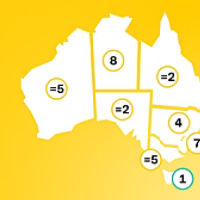Spending intentions on motor vehicles increased strongly by 5.3 per cent, as consumers continued to take advantage of increased imports and stock post-Covid. A slight decline in purchases was offset by increased car loan applications – electric vehicles now account for 8 per cent of sales, up from 1.1 per cent a year ago.
Higher utilities bills saw utilities spending continue to climb, up 7 percent on April last year - the fastest annual pace of growth in utilities spending since the HSI was introduced in 2018.
Commonwealth Bank of Australia Chief Economist Stephen Halmarick said weaker spending in April reflected the increasing cost of living for Australians, while the number of public holidays also impacted activity.
“Spending activity continues to moderate in response to the increased cost of living, with annual spending growth falling to 3.7 per cent in April from a peak of 15.2 per cent in August 2022 and well below the rate of inflation at 7 per cent.
“With the RBA increasing interest rates again last week to 3.85 per cent monetary policy is now highly restrictive and we expect the lagged effect of higher interest rates will further weaken household spending as the year progresses.
“However we believe this latest increase will mark the peak in the cash rate, and that the RBA will commence interest rates cuts later this calendar year as inflation starts to trend downwards towards the Reserve Bank’s 2-3 per cent target range,” Mr Halmarick said.
CBA economics team is forecasting a significant reduction in the budget deficit in the Federal Budget 2023-24 to be announced later today and measures to support more affordable housing.
The CommBank HSI Index combines analysis of CBA payments data (Australia’s largest consumer spending data set covering approximately 40 per cent of payment transactions), loan application information and Google Trends publicly available search activity data. To access this powerful insight into spending trends, visit: commbank.com.au/hsi



